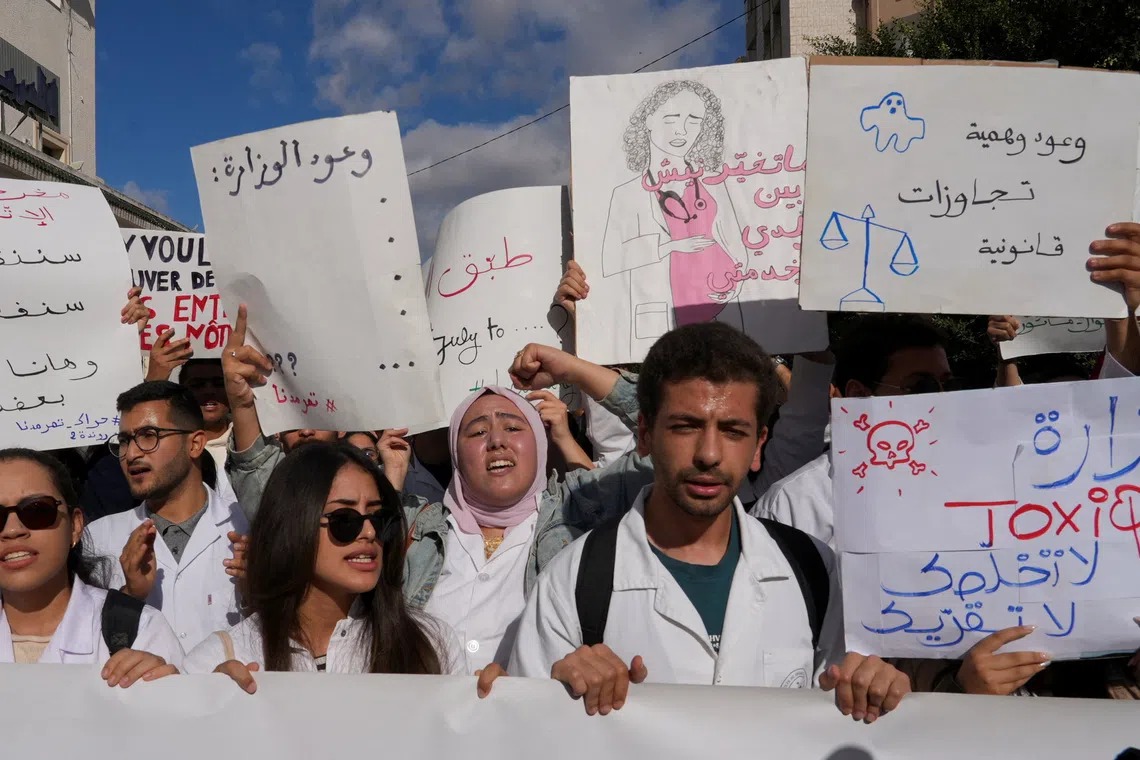
Tunisia has been hit by a wave of demonstrations in recent months, driven by a deepening economic crisis and widespread frustration over failing public services. The mounting pressure marks one of the most serious challenges to President Kais Saied since he consolidated power in 2021.
“We are exhausted, underpaid and working in a system that is breaking down,” said Marwa, a doctor who declined to give her surname, during a rally in central Tunis attended by hundreds of striking medical staff. “If nothing changes, more doctors will leave and the crisis will only deepen.”
Protesters in white coats marched near the Tunisian parliament, holding signs reading “Dignity for doctors” and “Save our hospitals”. Many said low wages, outdated equipment and chronic shortages of basic medical supplies were accelerating the departure of young health workers to Europe and the Gulf.
Wajih Dhakkar, head of the Young Doctors’ Organisation, said the strike would continue until the government responds to their demands. “As long as the authorities ignore us, we will escalate and lead the social movement,” he told Reuters.
The Health Ministry did not immediately comment.
President Saied has previously accused “conspirators” of manufacturing crises across key sectors to destabilise the state. Tunisia has also faced strikes by transport and banking workers, while the southern city of Gabes has seen repeated protests over pollution linked to a state-run chemical plant.
